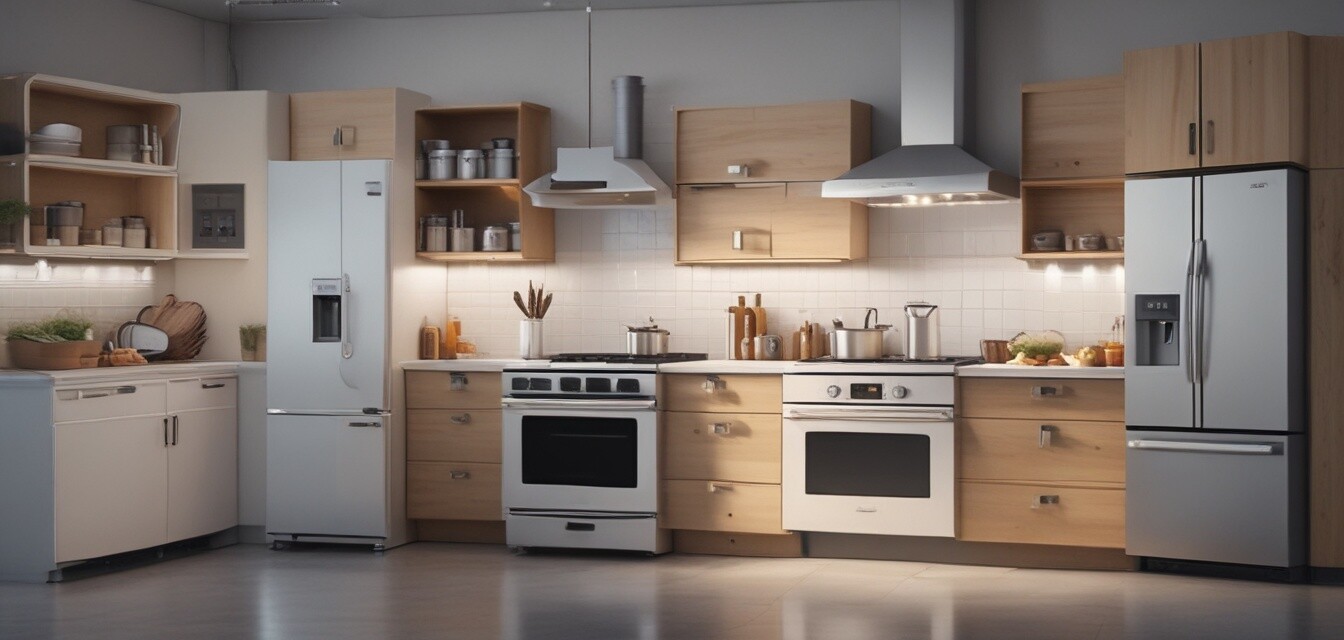
How energy efficient appliances can combat climate change
Key Takeaways
- Energy-efficient appliances reduce energy consumption, leading to lower carbon emissions.
- Adopting energy-efficient appliances can save consumers money on energy bills.
- These appliances are designed to minimize environmental impact and promote sustainability.
- Government incentives and programs often support the adoption of energy-efficient technologies.
- Being informed about the latest innovations helps consumers make better purchasing decisions.
As the urgency to combat climate change increases, consumers are seeking effective ways to reduce their carbon footprints. One of the most impactful steps is investing in energy-efficient appliances. This article explores how these appliances play a crucial role in reducing energy consumption, lowering utility bills, and minimizing environmental impact.
The impact of energy consumption on climate change
The energy sector is a significant contributor to global carbon emissions. According to data from the Environmental Protection Agency (EPA), energy production accounts for a staggering portion of greenhouse gases released into the atmosphere. Here are several reasons why reducing energy use is vital:
- Carbon dioxide emissions from fossil fuels are a leading cause of climate change.
- Reducing energy consumption can lead to a decrease in the demand for fossil fuel extraction.
- Energy-efficient appliances consume less electricity, thus contributing to lower overall emissions.
Why choose energy-efficient appliances?
Purchasing energy-efficient appliances is not just about being environmentally responsible; it also offers numerous benefits for consumers:
| Benefit | Description |
|---|---|
| Cost Savings | Consumption of less energy results in reduced monthly utility bills. |
| Environmental Impact | Lower carbon footprints contribute to a healthier planet. |
| Innovative Technology | Many energy-efficient appliances come with advanced features for better performance. |
| Incentives | Government programs often provide rebates or tax credits for energy-efficient technologies. |
How energy-efficient appliances work
Energy-efficient appliances utilize innovative technology to perform the same tasks as standard appliances while using less energy. Here are key technologies that make these appliances more efficient:
- Smart technology: Many appliances are now equipped with smart features that optimize energy use by learning user habits.
- Advanced insulation: Energy-efficient refrigerators and freezers use advanced insulation that reduces energy consumption.
- Variable speed motors: Appliances like washing machines often have variable speed motors that adjust energy use based on load size.
Benefits of choosing energy-efficient appliances
Beyond environmental impacts, there are numerous practical advantages to selecting energy-efficient models:
- Long-term savings on energy bills.
- Improved comfort and convenience in daily tasks.
- Increased home value due to modern technologies and compliance with energy standards.
- Lower maintenance costs from more durable materials and better performance.
Government incentives and support
In many regions, governments encourage the adoption of energy-efficient appliances through various incentives:
- Rebates and discounts on qualifying purchases.
- Tax credits that further enhance affordability.
- Programs aimed at education and awareness regarding energy conservation.
It's beneficial for consumers to check with local authorities or energy suppliers to learn about available programs. For more information on energy-efficient purchasing tips, visit our Tips and How-to Articles section.
The future of energy-efficient appliances
The future looks promising for energy-efficient appliances. As technology continues to advance, we can expect even more innovations that reduce energy consumption and improve sustainability:
- Integration of renewable energy sources like solar power into appliances.
- Enhanced smart technology capabilities for seamless energy management.
- Development of eco-friendly materials to create appliances with lower environmental impact.
Conclusion
Investing in energy-efficient appliances is one significant way consumers can help combat climate change. By reducing energy consumption, not only can we lower our carbon footprints, but we also save money and promote sustainable practices within our communities. Embracing these innovations prepares us for a sustainable future while making a positive impact today.
Pros
- Lower energy bills
- Decreased environmental impact
- Enhanced technology and features
Cons
- Possibly higher initial investment cost
- Limited availability of certain models
- Potential learning curve with smart technologies
